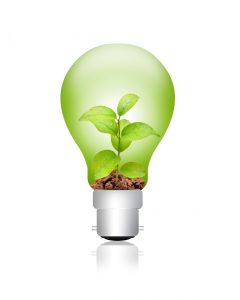In the world of modern agriculture, water management is key to optimizing crop growth and ensuring sustainability. One of the most innovative approaches to water management today involves hydroponic systems which are increasingly being adopted in commercial agriculture.
Hydroponics offers a method to grow crops without soil, using nutrient-rich water solutions instead. This blog will explore some of the most widely used hydroponic water systems in commercial settings, including Deep Water Culture, Nutrient Film Technique, Flood and Drain, Aeroponics, and Drip Systems. Rely on the experts at Schaible’s Mechanical for agricultural water systems in Flemington, NJ.
Deep Water Culture (DWC) Systems
Deep Water Culture (DWC) is one of the simplest yet highly effective hydroponic systems used in commercial agriculture. In a DWC setup, plant roots are suspended directly in a highly oxygenated, nutrient-rich water solution. This method allows plants to access water, nutrients, and oxygen continuously, leading to rapid growth rates. Proper monitoring and system maintenance are critical to prevent issues like root rot or nutrient imbalances.
Nutrient Film Technique (NFT) Systems
In an NFT system, a thin stream of nutrient-rich water flows continuously over the roots of plants that are held in a sloped channel. This constant flow ensures that plants receive a steady supply of nutrients while their roots have ample access to oxygen. NFT systems are particularly valued for their efficient use of water and nutrients, making them ideal for lighter crops like leafy greens and herbs which thrive under continuous flow conditions.
Flood and Drain (Ebb and Flow) Systems
These systems work by periodically flooding a growing area with nutrient-rich water and then draining it back into a reservoir. This cyclical flooding process ensures that plants receive both nutrients and oxygen in a balanced manner. They provide flexibility for commercial growers to cultivate various crops, from vegetables to flowers. The primary advantage of these systems is their ability to adapt to different plant types and sizes.
Aeroponics Systems
In an aeroponic system, plant roots are suspended in the air and misted with a fine spray of nutrient-rich water. This method provides maximum oxygen exposure to the roots, promoting faster growth rates and higher yields. Aeroponics requires precise control over environmental conditions and even minor technical issues can lead to crop failures.
Drip Systems
In drip systems, a controlled drip of nutrient solution is delivered directly to the plant roots through a network of tubes and emitters. This targeted approach minimizes water and nutrient waste and can be easily scaled up for large operations.
Drip systems are particularly advantageous for commercial growers who cultivate a wide range of crops, from fruits to vegetables. They provide precise control over nutrient delivery, reducing the risk of over-fertilization or nutrient deficiencies.
Choose Schaible’s Mechanical for Hydroponic Water System Services
Hydroponic water systems offer a range of innovative solutions for commercial agriculture, providing flexibility, efficiency, and sustainability. Commercial growers can choose a system that best fits their crop types, scale, and operational goals. By carefully selecting and managing the appropriate hydroponic method, farmers can optimize their production, reduce resource use, and ultimately improve profitability in a competitive market.

